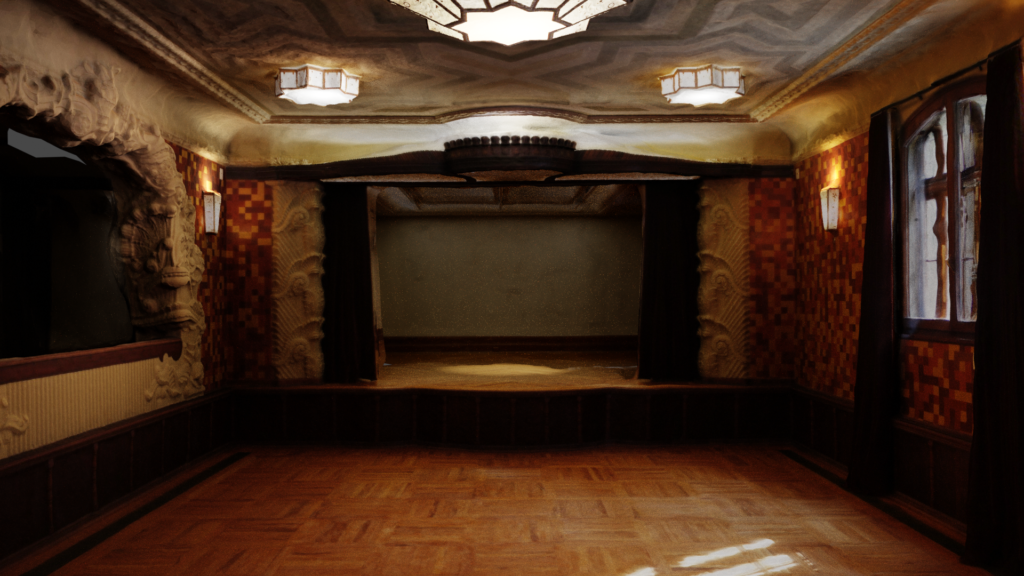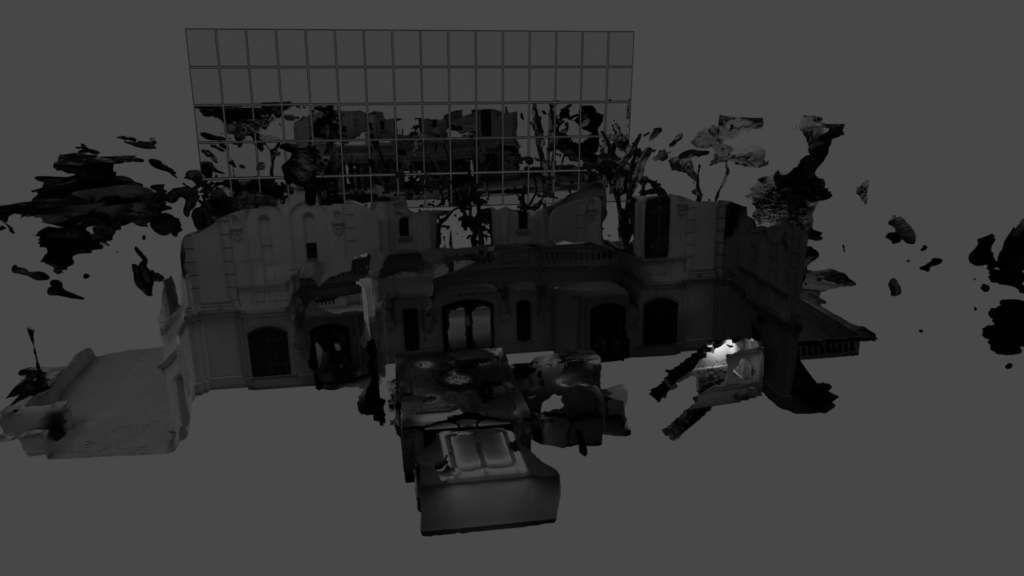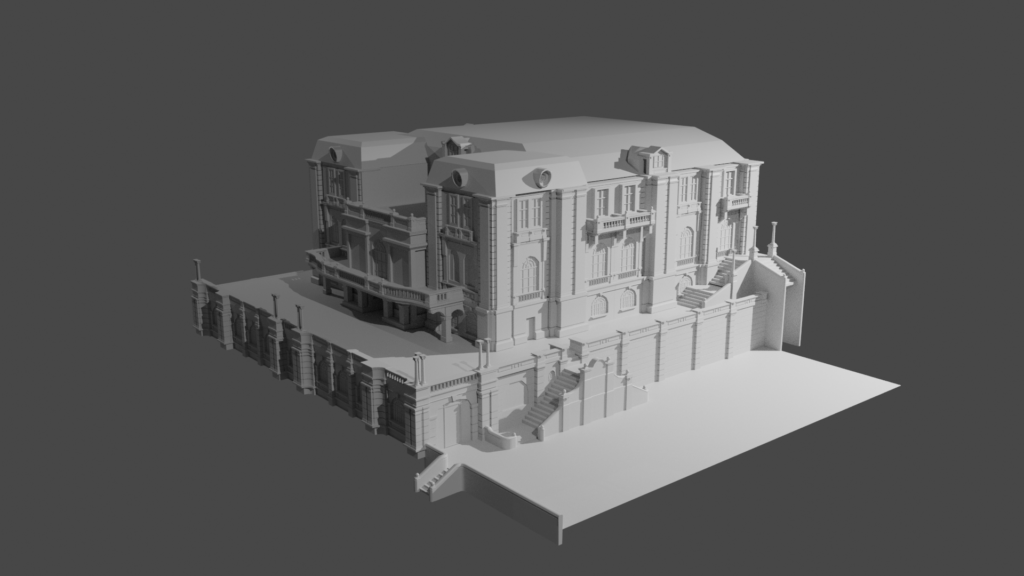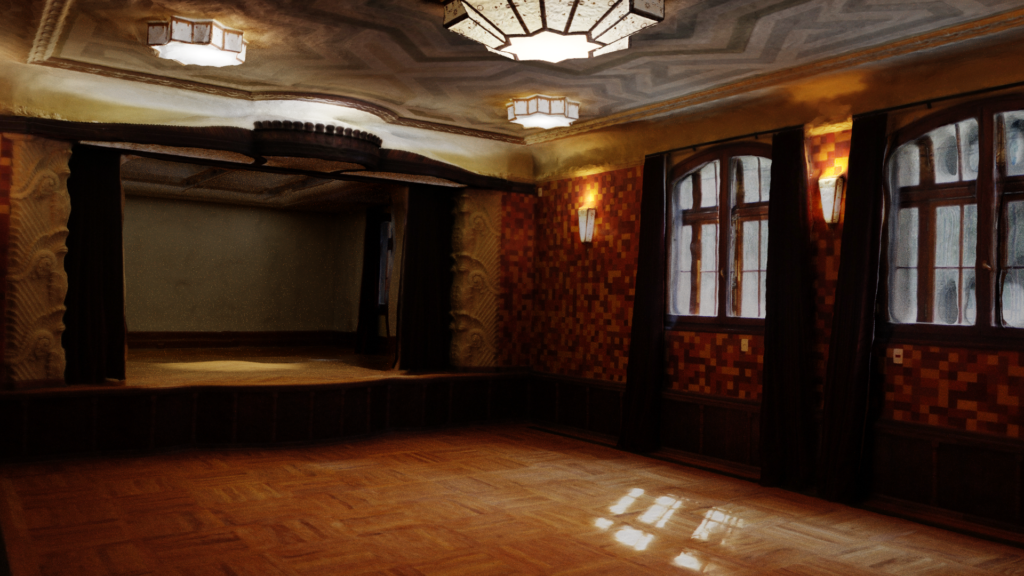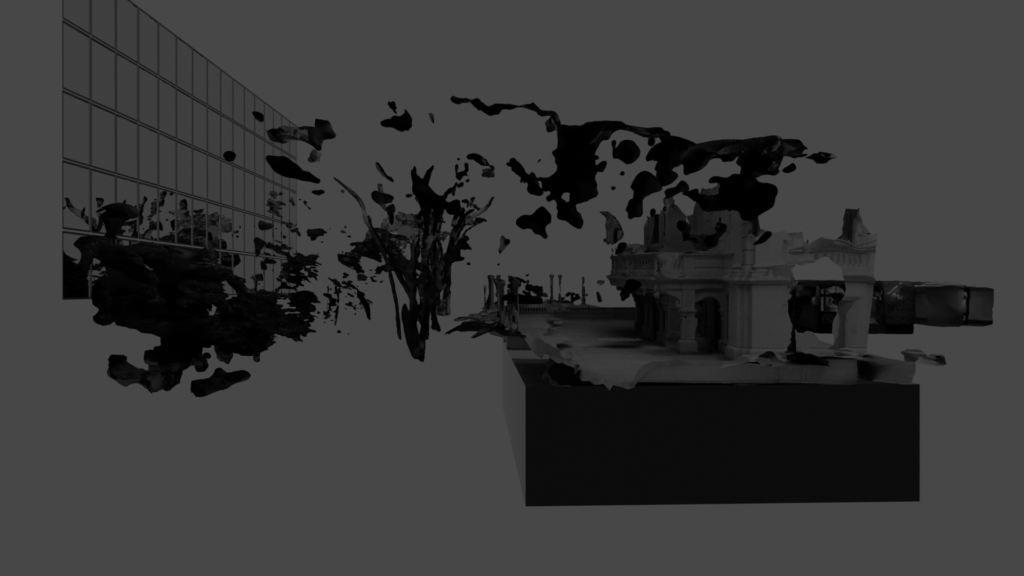nhonhô, 2020
HD video, colour, sound
09’46”
in collaboration with Giselle Beiguelman
“Nhonhô” is one possible biography of a mansion which represents the Europeanizing delirium and the isolationist attitudes of the São Paulo upper class of the early 20th century. The title character, Carlos Leôncio de Magalhães, was one of the foremost coffee barons in Western São Paulo. In life, he carried the nickname “nhonhô”, a diminutive term used by enslaved persons when addressing their master’s children. He built his mansion in the Higienópolis neighborhood (where the bourgeoisie sought refuge from the rapidly growing city), using European ideas, techniques, and materials, in an attempt to reflect all his earthly glory. He died, however, before it was finished.
Without resorting to the human figure, “nhonhô” centers around the virtual reconstruction and deconstruction of the architectural elements of Nhonhô Magalhães’ mansion, which presently finds itself in a limbo between ruin and a proposed remodeling meant to align it to the new Higienópolis standards, almost a century after its construction. The temporal relations between architecture and society serve as a lens through which one may comprehend the protagonist’s past as well as other aspects of São Paulo’s history.
Giselle Beiguelman and Ilê Sartuzi share an interest in (and similar research on) architecture and the digital environment; “nhonhô” is their first collaboration. Without full access to the mansion, the artists chose to recreate it by using fragments of photogrammetry– which, they contend, are “surrounded by gaps of unrevealed information”–and elements of randomness, by means of AI and machine learning programs.
Conceptual frameworks and formal choices systematically inform one another. The temperate, autumnal, and reddish palette, for instance, is generated by algorithms that search for color schemes in European and North American databases. The “deviation” in the colorization of historical tropical images ultimately mirrors the distorted image that the coffee bourgeoisie had of itself while attempting to create its own private Europe in São Paulo.
Solange Farkas
